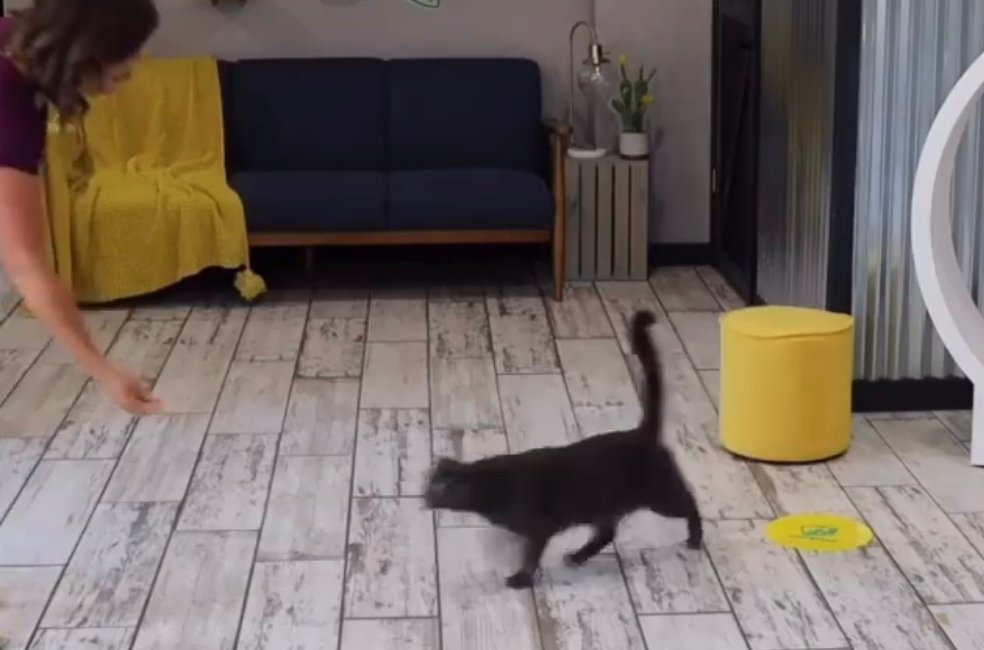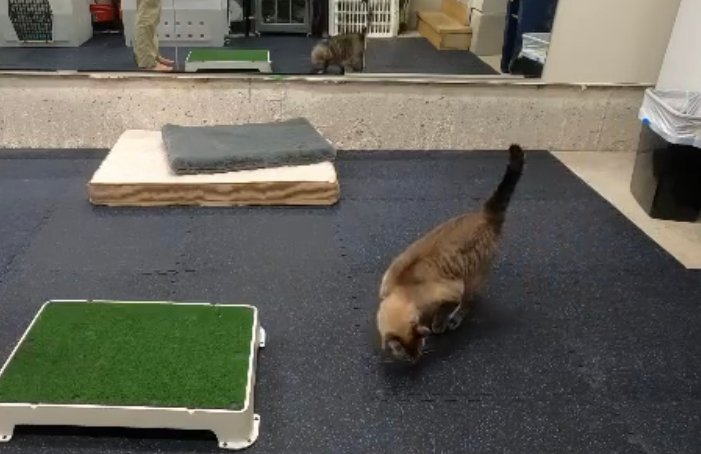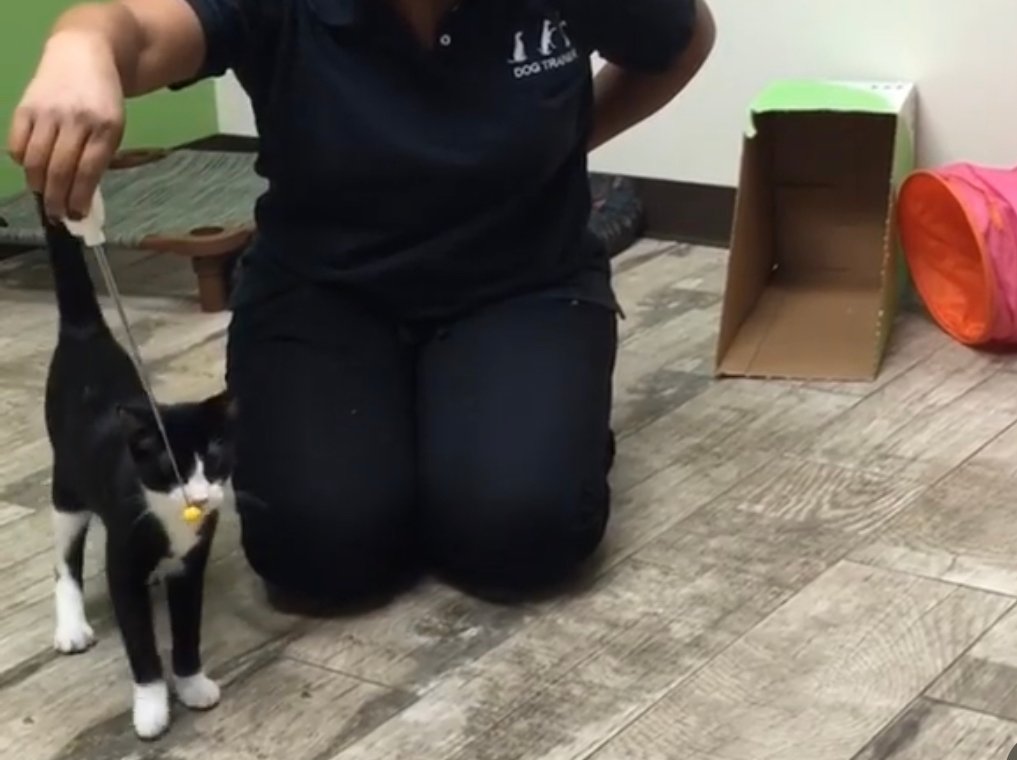Experience the difference that professional cat training can make in your cat’s life. Boost confidence, obedience, and happiness. Find out how. This guide covers professional cat training, its benefits, and how to select the perfect trainer for your pet.
What is Professional Cat Training?
Professional cat training refers to the process of teaching cats various behaviors, tricks, and commands under the guidance of a certified cat trainer. It goes beyond basic training techniques and delves into understanding feline psychology, body language, and communication to create a deeper bond between you and your cat.
The Benefits of Professional Cat Training
Enrolling your cat in professional cat training offers numerous benefits, including:
- Improved behavior: Professional trainers use their expertise to address common behavioral issues, such as aggression, litter box avoidance, and scratching.
- Enhanced communication: Professional training can help bridge the gap between you and your cat, making it easier for both parties to understand each other.
- Socialization: Exposure to other cats and people during training sessions helps improve your cat’s social skills.
- Strengthened bond: Working with your cat builds a stronger connection and mutual trust.
- Increased safety: A well-trained cat is less likely to get into dangerous situations or cause harm to itself or others.
Finding a Certified Cat Trainer
Finding a certified cat trainer with experience in feline behavior and training is essential to ensure the best results. Here’s how:
- Research credentials: Look for trainers with certifications from reputable organizations, such as the International Association of Animal Behavior Consultants (IAABC) or the Association of Professional Dog Trainers (APDT).
- Check for specialization: Some trainers specialize in agility or behavior modification. Choose one that aligns with your cat’s needs.
- Read reviews and testimonials: Check online reviews and ask for recommendations from friends or veterinarians to gauge the trainer’s effectiveness and professionalism.
- Conduct interviews: Meet potential trainers to discuss their training methods, experience, and how they plan to address your cat’s specific needs.
- Observe a training session: Attend a training session to see how the trainer interacts with cats and handles various situations.

You May Also Interest: How to Train Your Cat to Come When Called?
How Professional Cat Training Works
Professional cat training typically involves the following steps:
- Assessment: The trainer will assess your cat’s behavior, temperament, and existing issues to develop a tailored training plan.
- Training sessions: The trainer can conduct sessions one-on-one or in a group setting, depending on your cat’s needs.
- They may occur at the trainer’s facility, at your home, or even online.
- Positive reinforcement: Most professional trainers use positive reinforcement techniques, such as treats, praise, and play, to encourage desired behaviors.
- Progress monitoring: The trainer will monitor your cat’s progress and adjust the training plan to ensure the best possible results.
- Owner involvement: As a cat owner, you’ll play a crucial role in reinforcing the training at home and maintaining consistent communication with the trainer.
Professional Cat Trainer Near Me: How to Find Local Options
To find a professional cat trainer near you, consider the following resources:
- Online directories: Websites like the IAABC or APDT offer searchable databases of certified trainers in your area.
- Local pet stores and veterinarians: Many pet stores and vet clinics can recommend trainers they trust or even host training sessions on-site.
- Social media and online forums: Join local pet-owner groups on social media or browse online forums to seek recommendations and advice from fellow cat owners.
- Networking at pet events: Attend pet events, such as workshops, conferences, and expos, to meet trainers and learn more about their services.
Preparing Your Cat for Professional Training
Before you start working with a professional cat trainer, there are some steps you can take to prepare your cat and set them up for success:
- Socialization: Ensure your cat is well-socialized and comfortable around new people, animals, and environments. That will help them feel more at ease during training sessions.
- Basic obedience: Teach your primary cat commands like “sit” and “stay,” as these can serve as a foundation for more advanced training with a professional.
- Vet checkup: Schedule a veterinary checkup to ensure your cat is in good health and up to date on vaccinations before starting professional training.
- Set clear goals: Before working with a trainer, consider what you hope to achieve through professional cat training. That will help guide your trainer in developing a customized training plan for your cat.
Training Your Cat for Specialized Tasks
Some cat owners may seek professional training for their cats to teach them specialized tasks or skills. These may include:
- Therapy cats: Individuals in hospitals, nursing homes, and other care facilities can train cats to provide comfort and support.
- A professional trainer can help teach your cat the necessary skills and behaviors for this role.
- Emotional support animals: Owners can train cats to provide emotional support, especially for those with mental health challenges.
- A professional trainer can work with your cat to develop the appropriate skills and temperament for this role.
- Service animals: People can train cats to help with specialized chores for disabled individuals.
- A professional trainer can help you determine if your cat is a suitable candidate for this role and guide you through the training process.
- Agility and sports: Some cat owners may be interested in teaching their cats to participate in agility courses or other sports. A professional trainer can help introduce your cat to these activities and teach them the necessary skills.

What to Expect from a Professional Cat Trainer
When working with a professional cat trainer, you can expect the following:
- Open communication: A good trainer will maintain open lines of communication with you throughout the process, discussing your cat’s progress, challenges, and any adjustments needed to the training plan.
- Customized approach: Every cat is unique, and a professional trainer will tailor their training methods to suit your cat’s specific needs, personality, and learning style.
- Support and guidance: Your trainer will provide support and guidance for your cat and as a cat owner. They’ll help you understand your cat’s behavior and offer advice on reinforcing the training at home.
- Patience and empathy: A professional cat trainer should demonstrate patience and kindness toward you and your cat, creating a positive and supportive training environment.
You May Also Interest: Stop the Scratch: Mastering How to Train Your Cat Not to Scratch
How to Support Your Cat's Training at Home
Ensuring the success of your cat’s professional training requires you to reinforce the lessons at home.
Here are some tips for supporting your cat’s training:
- Consistency is key: Be consistent with commands, rewards, and routines to help your cat internalize the training.
- Practice regularly: Set aside time daily for practice sessions to reinforce the skills your cat learned during professional training.
- Offer praise and rewards: Use positive reinforcement, such as treats, credit, and playtime, to encourage and reward desired behaviors.
- Be patient: Training takes time, and every cat learns at a different pace. Be patient with your cat and celebrate small victories along the way.
- Communicate with the trainer: Keep the trainer informed about your cat’s progress and any challenges you encounter during at-home practice sessions.
Training Beyond the Basics: Advanced Cat Training
Once your cat has mastered basic skills, you should explore advanced training options. These can include:
- Agility training: Teach your cat to navigate obstacle courses, promoting physical exercise, mental stimulation, and increased confidence.
- Trick training: Learn fun tricks like a high-five, rollover, or fetch to strengthen your bond with your cat and showcase its intelligence.
- Therapy cat training: Train your cat to provide comfort and companionship to people in hospitals, nursing homes, and other care facilities.
- Scent detection: Develop your cat’s natural scent-detection abilities to find hidden objects or participate in scent work competitions.
You May Also Interest: Can Weather Affect Cats Behavior? Discover The Truth
Costs of Professional Cat Training
Professional cat training costs vary depending on the trainer’s experience, location, and training type. Here are some general cost estimates to consider:
- Group classes: Group training sessions typically cost between $100 and $300 for a multi-week course.
- Private lessons: One-on-one training sessions can range from $50 to $150 per hour, depending on the trainer’s expertise and the complexity of the training.
- Online classes or consultations: Virtual training sessions and talks can cost anywhere from $30 to $100 per session.
Professional cat training can save you money in the long run by preventing or addressing behavioral issues that may lead to property damage, medical expenses, or even rehoming your cat.
Conclusion
Professional cat training is invaluable for cat owners seeking to improve their feline’s behavior, enhance communication, and strengthen their bond. By finding a certified trainer, supporting your cat’s training at home, and exploring advanced training options, you can help your cat reach its full potential and enjoy a happier

